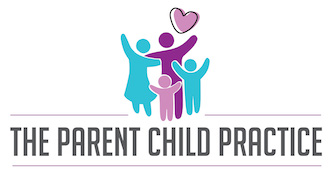There’s a reason why there are thousands of children’s books available across the world, with new titles getting penned all the time. It’s not just that there are endless stories to tell, it’s that the benefits of reading with your children—especially at a young age—are huge!
The theory of the necessity of reading a bedtime story to your child has stood the test of time. It’s a great way to wind down from the day and have a few minutes of bonding time with your child.
But, while you’re reading a classic tale or a new title, you could be doing so much more for their verbal and language skills and their imagination than you might realize.
So, why is it really so important to read with your children as often as possible?
Starting Them Off With the Skills They Need
Did you know that over one in three children go into Kindergarten without the proper skills they need to keep up? Additionally, there is an estimated 32 million word gap between children, beginning at kindergarten, that is attributed to language exposure. Reading to your little ones, especially at an early age, can help to bring that statistic up.
Even from birth, telling stories to your child that focus on rhythm, rhyming, and simply talking can make a big difference in their language development. Language itself is the foundation of learning. Everything stems from it. By making language a huge part of your child’s life early on, you’re giving them a sturdier foundation to build upon.
Children who are read to earlier in life tend to excel in school more than those who were not exposed to literacy at a young age. When you start to read to your child early on, they will use those language skills to become avid readers themselves. That helps to set them up with the skills to be life-long learners.
Instilling a New Way to Communicate
While you should be reading with your child from books regularly, you can also find opportunities to read with them and teach them the importance of language and literacy in everyday life.
When you’re on a walk in the park, point out street signs or buildings with names and read them aloud. When you’re at the grocery store, you can help your child to read food labels and signs depicting, which ingredients are in certain aisles.
By using reading in daily situations, you’ll show your child just how important it is to become a strong reader. They’ll enjoy the satisfaction of learning new things. It will offer them new ways to communicate with you and the world. As a result, they may be more motivated to continue learning and reading on their own.
Setting a Positive Example
While reading to and with your child is important, it’s also necessary to set a positive example. Children pay close attention to everything their parents do—even when you don’t realize it. From reading recipe books to magazines to the daily newspaper, setting good literacy examples for your child will show them that reading is simply “the norm.” This will encourage them to do it on their own as they grow and are able to read by themselves.
When you read to your child, even as a newborn, you’re preparing them for a life of learning, growing, and thinking. You’re also preparing them to stay ahead of the curve not only from an educational standpoint but for learning the basic skills of life.
Again, language is the foundation of everything. When you create that foundation while your child is young, imagine how much they can add to it.
—
If you want to know more about how reading with your children can make a positive impact on their lives from a very early age, feel free to contact me. We can also talk about ways to make reading a positive experience for both of you and how to incorporate it into your daily routine.



